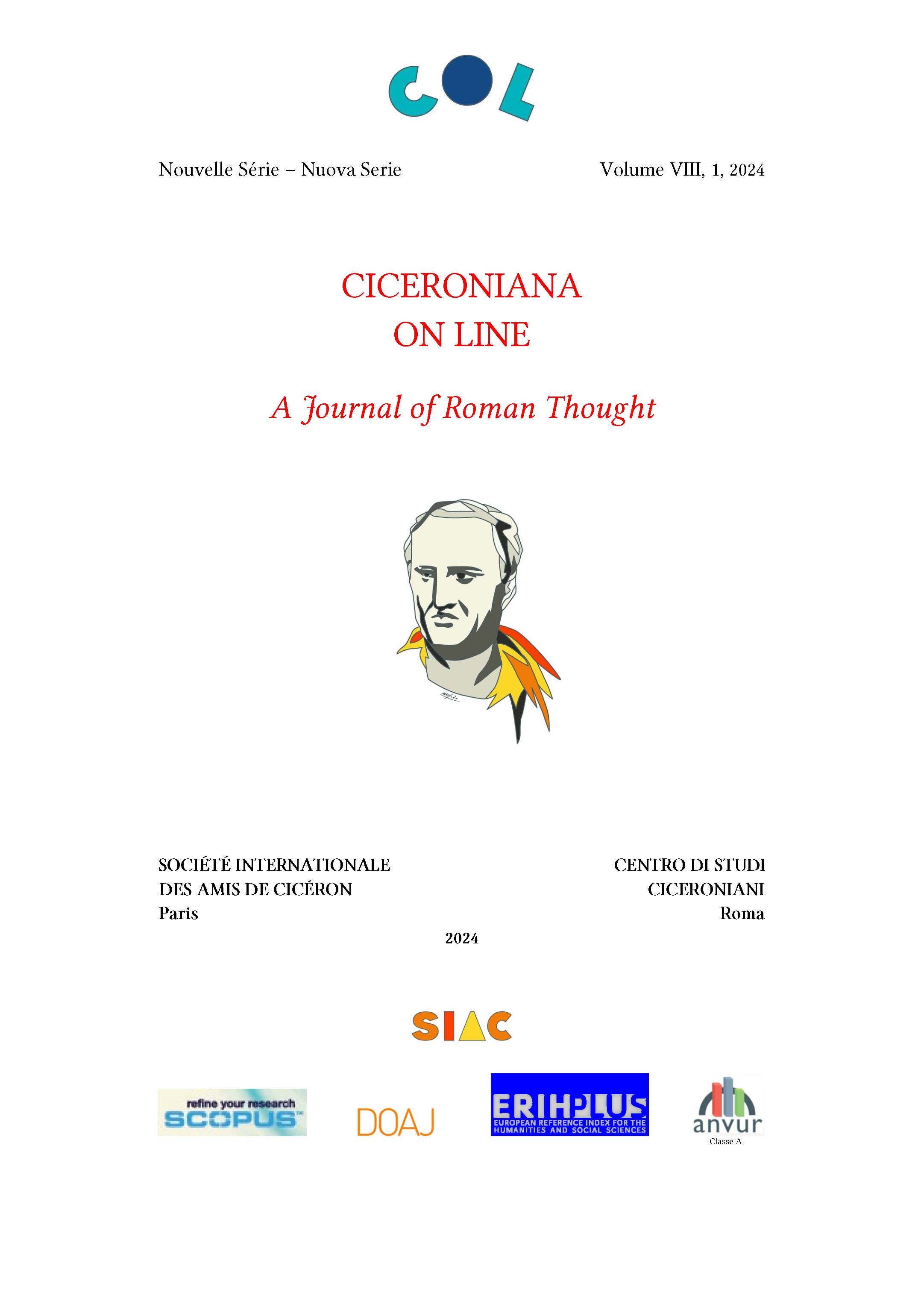The strange case of the manuscripts Pierpont M497 and Balliol College 248D in the tradition of Cicero's Lucullus
DOI:
https://doi.org/10.13135/2532-5353/10901Abstract
Starting from some suspicions about anomalies detected in the manuscript tradition of the recentiores of Cicero’s Lucullus, this paper seeks to demonstrate the effectiveness of the spreadsheet as a tool for identifying problematic loci. Using a limited set of formulas, the problem is narrowed down to a specific range of paragraphs, followed by a targeted collation. The outcome of this analysis is the discovery that the Ball and Corv manuscripts, always placed within of a single family, are instead the result of two antigraphs belonging to different branches of the tradition of Cicero’s work. Ultimately, the system that leverages the potential of the spreadsheet proves to be effective and functional for textual criticism.
Downloads
Downloads
Published
How to Cite
Issue
Section
License
Authors who publish with this journal agree to the following terms:
- Authors retain copyright and grant the journal right of first publication with the work simultaneously licensed under a Creative Commons Attribution License that allows others to share the work with an acknowledgement of the work's authorship and initial publication in this journal.
- Authors are able to enter into separate, additional contractual arrangements for the non-exclusive distribution of the journal's published version of the work (e.g., post it to an institutional repository or publish it in a book), with an acknowledgement of its initial publication in this journal.


 Ciceroniana On Line is recognised by ANVUR (the National Agency for the Evaluation of the University System and Research) as a CLASS A journal for the Sciences of Antiquity, Philology, Literature and History of Art (
Ciceroniana On Line is recognised by ANVUR (the National Agency for the Evaluation of the University System and Research) as a CLASS A journal for the Sciences of Antiquity, Philology, Literature and History of Art ( The journal is included in DOAJ. The DOAJ listing of the journals is available at
The journal is included in DOAJ. The DOAJ listing of the journals is available at  The journal is indexed in
The journal is indexed in  The journal has been included in ERIH PLUS. The ERIH PLUS listing of the journals is available at
The journal has been included in ERIH PLUS. The ERIH PLUS listing of the journals is available at 

